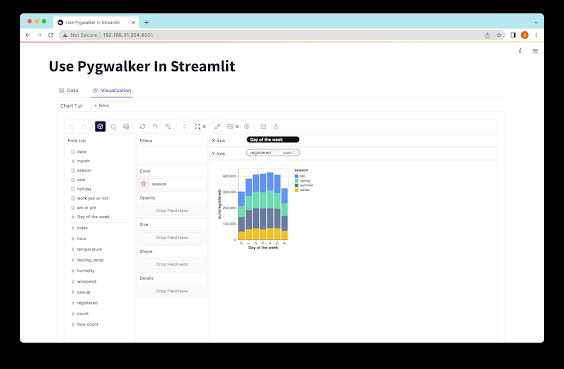Augmented Analytics Explained and Why You Should Care
Exploring the Benefits of Augmented Analytics
With data becoming increasing valuable in today's business world, companies are constantly looking for new ways to uncover insights and drive performance. One of the most exciting modern techniques for doing this is through augmented analytics, which is a blend of machine learning, natural language processing, and statistical algorithms. In this article, we'll explore the benefits of augmented analytics and how businesses are leveraging it to gain a competitive edge.
What is Augmented Analytics?
Augmented analytics refers to the use of technology to augment or support human intelligence and decision-making processes. This includes the ability to analyze large data sets, identify patterns and relationships, and even generate insights and recommendations. Augmented analytics is designed to help businesses make better decisions faster, by automating some of the more routine aspects of data analysis and decision-making.
One of the key benefits of augmented analytics is that it can be used by non-technical users without requiring specialized data science skills or training. This makes it easier for business users to access and leverage data insights to drive decisions. At the same time, augmented analytics also helps to ensure data accuracy and consistency, by using AI algorithms and machine learning to identify trends and anomalies.
Benefits of Augmented Analytics
- Increased productivity
One of the biggest benefits of augmented analytics is that it can help businesses to save time and increase productivity. By automating data analysis and insights generation, augmented analytics allows business users to focus on making decisions based on data, rather than spending time on routine analysis tasks. This can help businesses to become more agile and responsive, by enabling faster and more informed decision-making.
- Improved accuracy and consistency
Another key benefit of augmented analytics is that it can help to ensure data accuracy and consistency. With machine learning algorithms that can identify patterns and relationships in data, businesses can rely on more consistent and accurate insights. This can help to reduce errors and increase trust in data-driven decisions.
- Faster decision-making
Augmented analytics can also help businesses to make faster decisions, by providing real-time insights and recommendations. These insights can be used to identify trends and opportunities, as well as to flag potential risks or challenges. By automating the analysis and insights generation process, businesses can generate insights at much faster speeds than would be possible through manual analysis.
- Better resource utilization
By leveraging augmented analytics, businesses can better allocate resources by identifying areas of the business that are performing well, as well as those that require improvement. This can help businesses to identify areas where additional investment may be required, or where resources can be reallocated to other areas of the business.
- Enhanced customer experience
Augmented analytics can help businesses to better understand their customers, through insights generated from customer data. This can help businesses to identify customer needs and preferences, as well as to identify trends and patterns in customer behavior. By leveraging these insights, businesses can create more personalized customer experiences, which can lead to improved customer loyalty and retention.
Applications of Augmented Analytics
Augmented analytics can be applied across a variety of industries and functions, including:
-
Marketing and advertising: Augmented analytics can help marketing teams to better understand their customers, and to identify the most effective marketing channels and tactics by creating vivid data visualizations for the decision makers.
-
Finance: Augmented analytics can help finance teams to identify trends and patterns in financial data, as well as to identify potential fraud or other financial risks.
-
Supply chain and logistics: Augmented analytics can help supply chain and logistics teams to identify areas of the supply chain that require optimization or improvement.
-
Healthcare: Augmented analytics can help healthcare organizations to better understand patient outcomes, and to identify potential risks or opportunities for improvement.
Traditionally, businesses prefer using established BI software such as Tableau and Power BI. However, in the recent years, newer Open Source solutions start to get attractions, with AI capacities or works as ChatGPT for Data Science.
Conclusion
Augmented analytics is becoming increasingly important in today's data-driven business world. By leveraging machine learning, natural language processing, and other AI algorithms, businesses can analyze large data sets, identify patterns and relationships, and generate insights and recommendations. This allows businesses to make faster, more informed decisions, and to drive performance across a range of functions and industries. As the pace of technological advancement continues to increase, so too will the importance of augmented analytics in helping businesses to stay competitive.
Read more about Data Analysis

Comments
Post a Comment